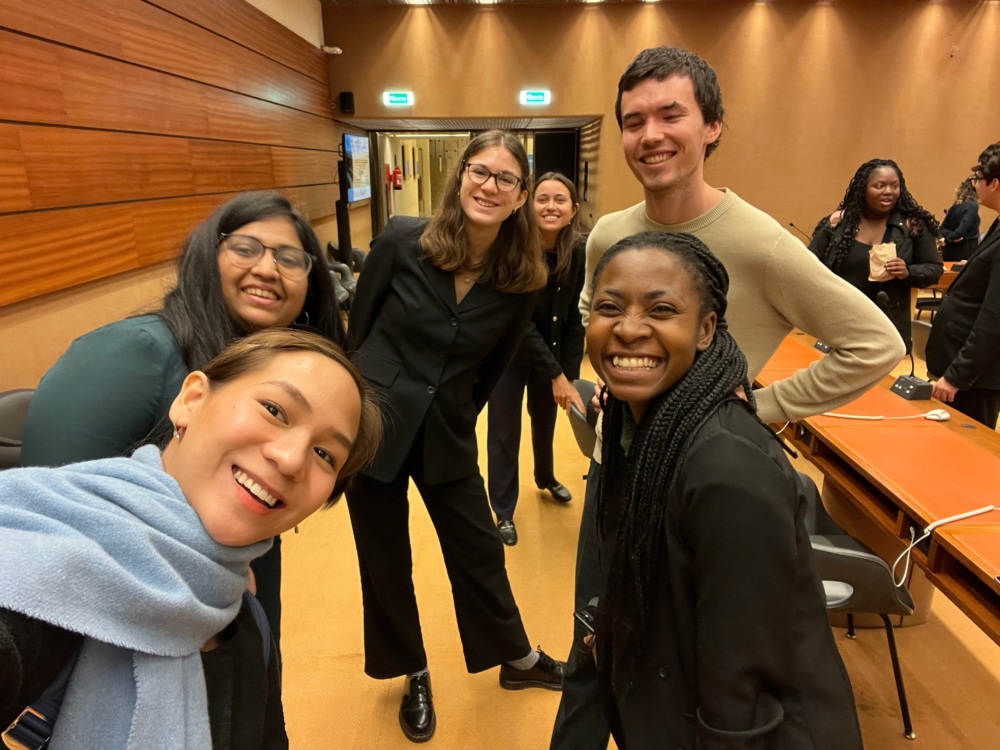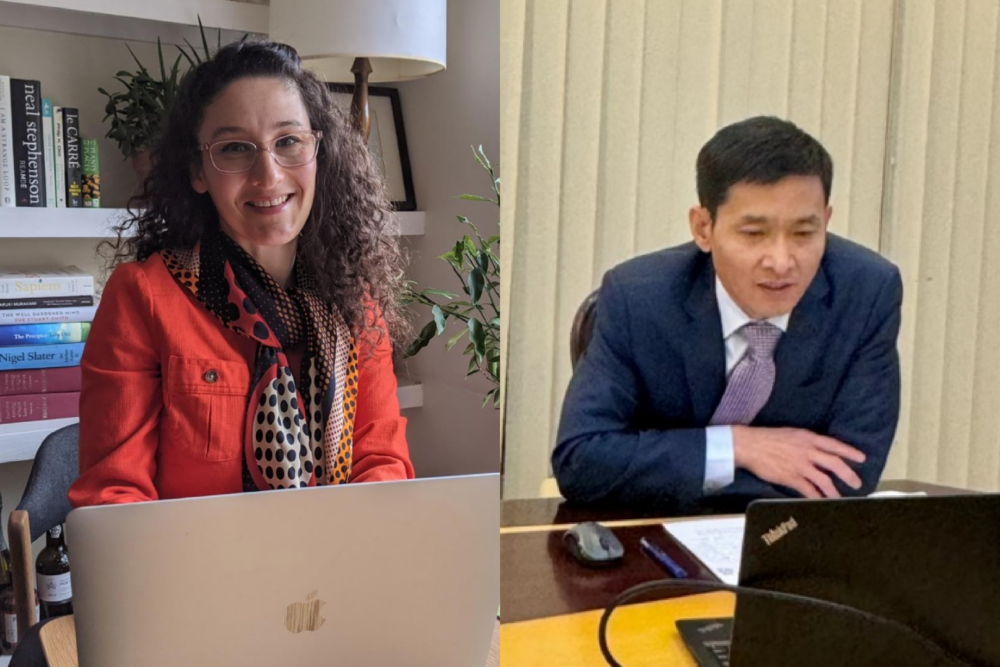
Apply for the 2024 NTI | bio Next Generation Biosecurity Delegation
NTI | bio will bring a 2024 Next Generation Biosecurity Delegation of early-career professionals to the Biological Weapons Convention (BWC) meetings from August 19 – 23.
NTI’s Global Health and Security Program Receives Major Grant from Google Foundation
The Google Foundation today announced a $2.5 million grant to NTI’s Global Health and Security Initiative (GHSI) to greatly enhance its work to rapidly detect, identify and respond to infectious disease outbreaks in Southeast Asia. This funding will strengthen GHSI’s global public health agenda, which includes efforts already underway in Southeast Asia and the Middle East. The Global Health and Security Initiative, which develops and implements the biological programs of the Nuclear Threat Initiative (NTI), is working around the world to prevent, detect and respond to biological threats.
“Google.org is deploying their resources, innovative technologies and outstanding personnel to combating emerging threats and making the world a better and safer place,” said former Senator Sam Nunn, co-chairman of NTI. “We view the fight against infectious disease as a security imperative as well as a health imperative. Whether a disease is naturally occurring or intentionally caused, the essential elements of an effective response are to detect the outbreak, diagnose the disease and take the right measures to treat it and contain it – immediately. This exciting partnership with Google will advance our work in building laboratory and epidemiologic capacity in Southeast Asia and can lead by example to enhance global efforts to combat infectious disease in other key regions of the world.”
The initial focus of the work in Southeast Asia will be in countries that are already members of the Mekong Basin Disease Surveillance network (MBDS) — Cambodia, China, Laos, Myanmar, Thailand and Vietnam. NTI’s Global Health and Security Initiative, in partnership with the Rockefeller Foundation, has been working with these countries to sponsor national and regional exercises that test their capabilities to respond to a possible human influenza pandemic, among other activities.
With this grant from Google, GHSI will continue to help the regional partners improve laboratory diagnostics capabilities and increase the training of personnel. In addition, GHSI will support the strengthening of a management system to enable these countries to work together as a regional network to reduce the burden of infectious disease for their populations. The grant will also enable GHSI to work with a wider range of partners in the region, including the new Google-sponsored non-profit organization, Innovative Support to Emergencies, Diseases and Disasters (INSTEDD).
“This enhancement of capabilities is very much in the global interest to provide for the early detection and warning of possible worldwide pandemics of infectious disease, such as highly pathogenic influenza,” said Terence Taylor, Director of GHSI.
Middle East Consortium for Infectious Disease Surveillance (MECIDS)
As part of these efforts, GHSI will apply lessons from its work elsewhere in the world, in particular the Middle East, where GHSI is supporting the groundbreaking Middle East Consortium for Infectious Disease Surveillance (MECIDS). In one of the most challenging political and security environments in the world, top public health officials from Israel, Jordan and the Palestinian Authority have been working together side-byside, on a daily basis, developing regional strategies and capabilities to detect, control and respond to infectious disease threats since 2004.
With financial support from the Bill and Melinda Gates Foundation and operating with partners, including the World Bank, the RAND Corporation and IBM, GHSI has been providing financial resources and expertise in support of this network, with hopes of expanding MECIDS to include other Middle East countries.
In an effort to increase the reach of its activities, GHSI also works closely with the International Council for the Life Sciences (ICLS), which promotes biosafety and biosecurity standards and training in the Middle East and North Africa. ICLS was launched in December 2005 with the support of NTI.
Building Global Regional Networks
GHSI hopes to help build a regional network to combat infectious disease in South Asia as well. It has begun working with experts in India and Pakistan and plans to reach out to experts in additional South Asian countries. Contacts have also been made with public health networks in Africa and Latin America with a view toward establishing stronger links between the regional networks to share experience and best practices.
“We believe this effort can help increase the overall global capability for rapid detection and identification of infectious diseases,” said Mr. Taylor.
NTI and GHSI
NTI’s Global Health and Security Initiative works through innovative partnerships worldwide to address the threat of natural pandemics, accidental outbreaks from laboratories and use of biological agents as a weapon. GHSI’s efforts seek to improve disease detection and response and to promote safe practices in biomedical science to secure dangerous pathogens and prevent the misuse of biotechnology information. For more information, please visit www.ghsi.org. The Nuclear Threat Initiative is a charitable organization working to reduce the threats from nuclear, biological and chemical weapons.
###
Sign up for our newsletter to get the latest on nuclear and biological threats.
NTI | bio will bring a 2024 Next Generation Biosecurity Delegation of early-career professionals to the Biological Weapons Convention (BWC) meetings from August 19 – 23.
NTI | bio convened more than 25 high-level biosecurity professionals, AI experts, and policymakers for the inaugural meeting of the International AI-Bio Forum.
The China Arms Control and Disarmament Association and NTI jointly convened a virtual Track II Dialogue, a forum to promote mutual understanding among Chinese and U.S. experts about urgent and emerging biosafety and biosecurity risks.

